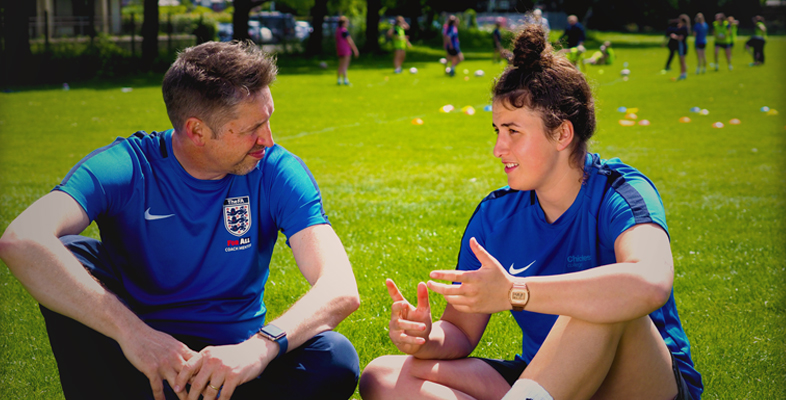3 Learning from the humanist approach
Humanist theory suggests that people are their own best experts and therefore best placed to understand their perceptions and decisions (Rogers, 1983). If you were mentoring Stewart in his role as a team manager, your relationship with him would be facilitative and you would use a welcoming and safe environment to promote self-confidence and self-esteem. Stewart would be encouraged to speak freely about his frustrations and feelings of anger without the fear of criticism (Rogers, 1983). This person-centred approach is often what counselling practice draws from.
The psychologist Carl Rogers outlined how practitioners can make a relationship a ‘growth-promoting climate’ supported by:
- congruence – the practitioner is genuine and authentic
- empathy – the practitioner feels and demonstrates empathy, and
- unconditional positive regard – the practitioner maintains a positive feeling without reservations, evaluations or judgements.
Counsellors who work in this way often take up to four years to fully understand themselves before they can achieve this growth-promoting climate. Coach developers striving to work in a more person-centred way are unlikely to be able to develop themselves to this extent but it is valuable to think more about how humanist principles might influence their work.
Activity 3 Applying humanist principles to coach developers
Look at Figure 4 and explore some of the tensions in applying congruence, unconditional positive regard and empathy to coach learning and development by clicking on each heading. Take time to carefully read through these descriptions: these points are a central part of this session.
Now, listen to this short audio clip of Lucy Moore and Stuart Armstrong discussing the extent to which the scope of their non-judgemental behaviour towards coaches very much depends on the scenario. There is a useful way in which Stuart describes how he introduces himself and his intentions in his first meeting with those he is supporting.
Transcript: Audio 1
Keep Stuart’s comments about the way he introduces himself in mind during the following sections in which you explore how first impressions matter when meeting others in contrasting situations.

